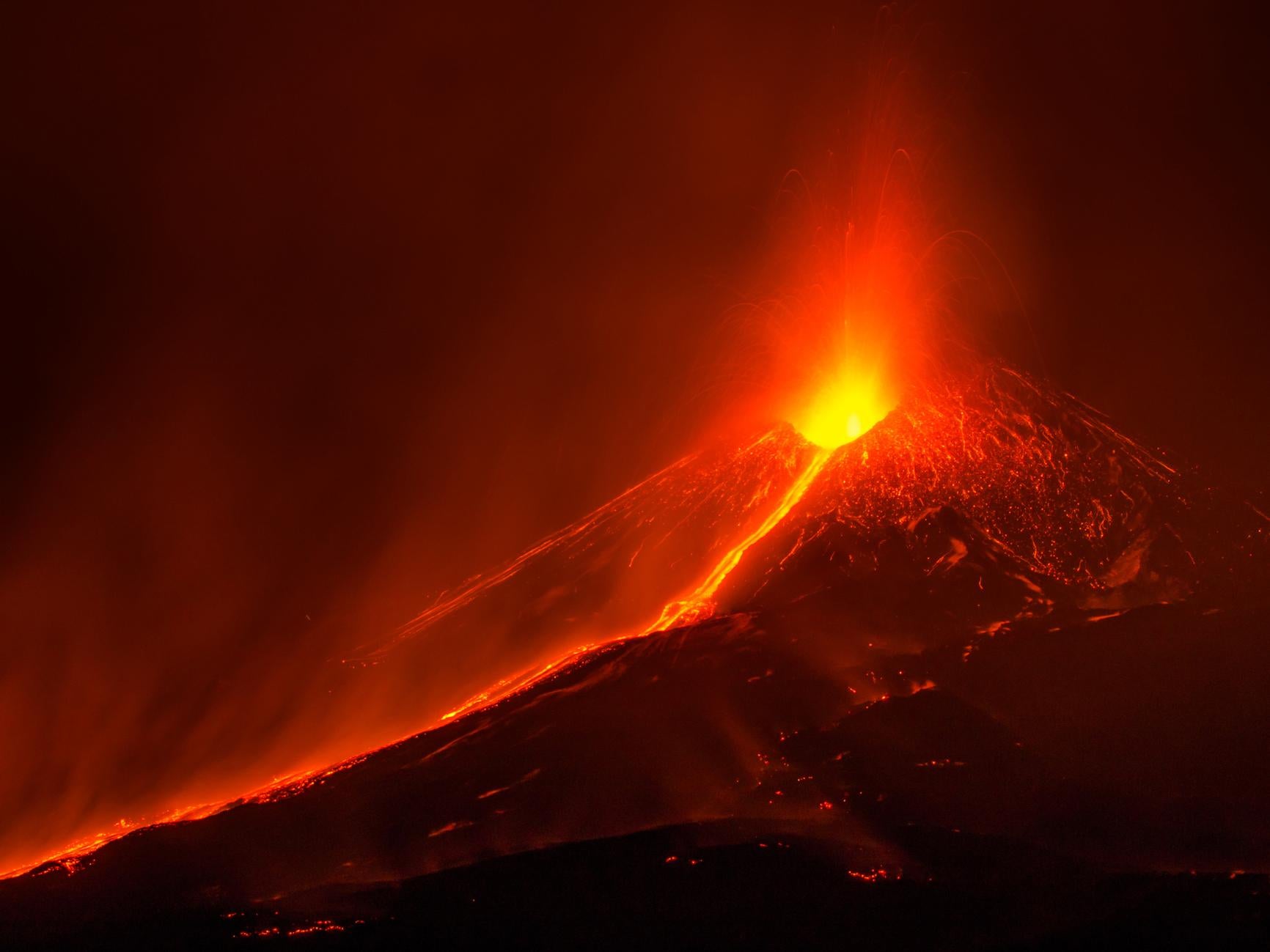The Independent's journalism is supported by our readers. When you purchase through links on our site, we may earn commission.
Mount Etna: Europe's biggest volcano 'sliding towards the sea'
Scientists say they will 'need to keep an eye on' gradual movement as it could lead to future landslides and affect eruption forecasting

The most active volcano in Europe is slowly sliding into the sea, according to new research.
Mount Etna – located on the Italian island of Sicily – is edging towards the Mediterranean at a rate of around 14mm per year.
While its movement may seem too slow to cause any concern, scientists studying the geology of the volcano have said the situation will require careful monitoring.
"I would say there is currently no cause for alarm, but it is something we need to keep an eye on, especially to see if there is an acceleration in this motion," lead author Dr John Murray told the BBC .
This is the first time downward “basement sliding” of an entire active volcano has been directly observed.
However, studies of extinct volcanoes suggest this phenomenon can lead to “devastating” collapse of their downslope sides, resulting in landslides.
Dr Murray, who has studied Mount Etna for nearly 40 years, has worked with his team to produce lab simulations of how such activity takes place.
They concluded that despite its instability, any threat posed by the volcano’s downward trajectory will likely not arise for thousands of years.
A more pressing concern could be the disruptive effect the sliding activity will have on the monitoring of future volcanic eruptions.

Mount Etna was first recorded erupting in 1500 BC, and since then it has erupted around 200 times, with a burst of activity in recent decades.
The last such event came in 2017, when several tourists and a BBC crew were injured after being “pelted with boiling rocks and steam”.
Researchers will need to account for their new measurements when conducting eruption forecasting for Mount Etna, as the deformation caused by a lava bulge in the mountain could be impacted by its downward movement.
The study, carried out by Dr Murray and his collaborators over the course of 11 years, was published in the journal Bulletin of Volcanology.
They arrived at their conclusions using data collected with a network of precise GPS stations around the volcano that monitor tiny changes in its behaviour.
Mount Etna is moving down a very gentle slope due to its position on a base of relatively weak, loose sediments.
While the data showed the mountain was moving in an east-south-east direction, towards the coastal town of Giarre, Dr Murray confirmed there was no need for local people to be concerned.
"The thing to watch I guess is if in 10 years' time the rate of movement has doubled – that would be a warning,” he said.
“If it's halved, I'd say there really is nothing to worry about."
Join our commenting forum
Join thought-provoking conversations, follow other Independent readers and see their replies
Comments
Bookmark popover
Removed from bookmarks